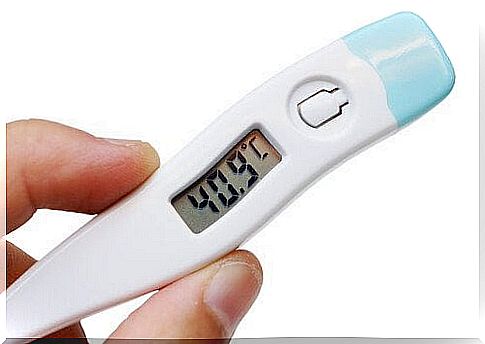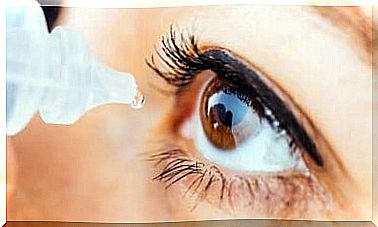How To Tell If You Have Hypothyroidism

Hypothyroidism is a much more common condition than one might think. The problem is that its symptoms can be confused with those of other diseases or even masquerade as habitual problems due to stress. Its specific symptoms, therefore, are poorly understood.
In this article we propose the key points to check if you are in the initial phase of this disease or if you could develop it in the future, as well as a test that will help you to have more certainty about this possibility.
What is hypothyroidism?
Hypothyroidism is a disease suffered by 3% of the population, characterized by a reduction in the levels of thyroid hormones in the bloodstream. It is more common among women than men, especially those over the age of 50 and those who have already passed pregnancy.
It is important to know that the thyroid is a gland located above the trachea that regulates the body’s metabolism and contributes to the production of hormones.

More frequent symptoms
Below we explain which are the most frequent symptoms of hypothyroidism and also the least known:
- Tiredness and exhaustion: The person can suffer from pain and muscle weakness.
- Constant feeling of cold, even when other people feel hot.
- Weight gain or difficulty losing weight even with dietary control and physical activity. In some cases, the opposite can happen, that is, the person will lose weight considerably.
- Tendency to constipation even if you consume foods rich in fiber and drink a lot of water.
- Tendency to depression or mood swings.
- Pale or yellowish skin.
- Particularly visible water retention on the face. The face swells, especially in the morning, and bags under the eyes appear, giving an air of tiredness.
- Hormonal imbalance and, in some cases, difficulty getting pregnant.
- Hair loss even if you follow a balanced diet. Hair is dry, brittle and breaks.
- Dry skin. In general, it is necessary to moisturize it with very nutritious products.
- Lack of hair in the outer ends of the eyelashes. This is a very characteristic, but little known symptom.
- Double chin.
- Tendency to suffer from infections.
- Frequent headache.
- Loss of memory and lack of concentration.

The thermometer test
There is a simple test that you can do yourself at home, without spending anything, and that will help you better understand if you suffer from hypothyroidism. You will only need a thermometer to make it.
Follow the steps below:
- When you go to sleep, leave the thermometer next to your bed so you don’t have to get up in the morning.
- As soon as you wake up, before doing anything, take the thermometer and take your temperature.
- We advise you to perform this test for several days in a row, at least 10, to find out what the average temperature of your body is at total rest.
What does it mean?
This average temperature is the key to knowing how the thyroid works:
- Normal: If it is between 36.2 and 36.7 degrees centigrade.
- Possible hypothyroidism: if it is below 36.2 degrees. This means that the thyroid is working slower than normal.
To make this test reliable, you have to disregard anything the night before that can alter your natural body temperature, such as electric blankets, alcohol, or other stimulants.
Women should also avoid doing this test during the first days of their period and during ovulation (approximately on day 14 of the cycle).
Fever, as is evident, alters this evidence.

Do I have symptoms?
If you have at least 5 of the symptoms we have talked about and, moreover, the thermometer test confirms that your body temperature is below the normal average, we recommend that you contact a specialist, so that he can carry out relevant analyzes and confirm or not the diagnosis as soon as possible.
It is always a good idea to consult your doctor when you have symptoms that have no apparent cause.









